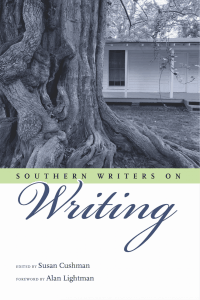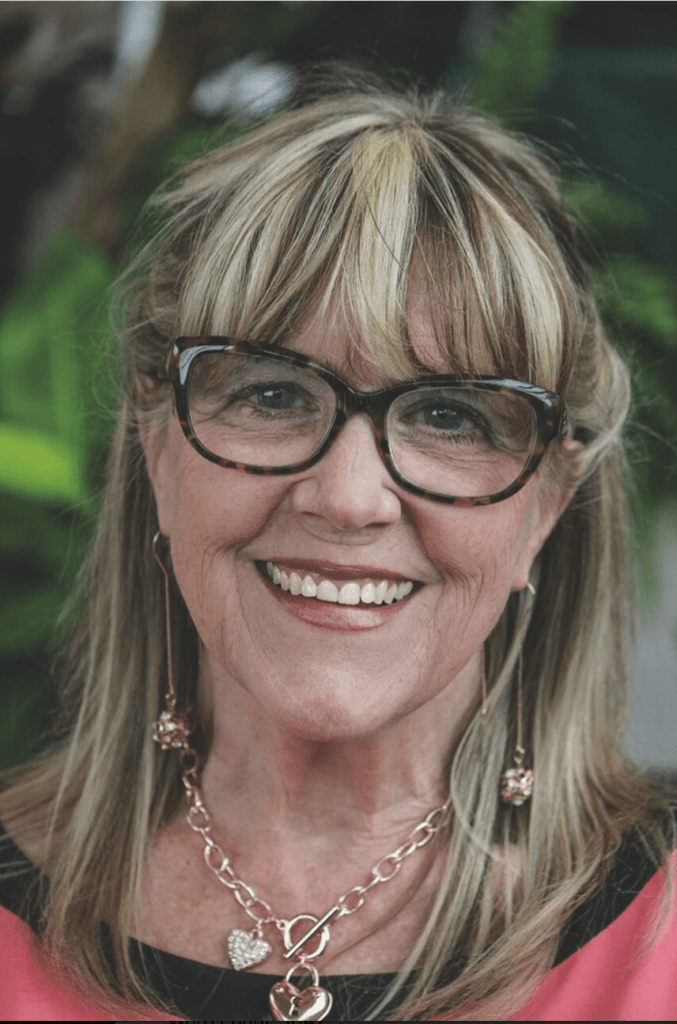There’s Something About the South
Five questions with Susan Cushman
BY ALEC HARVEY
Susan Cushman knows the South. Born in Jackson, she attended the University of Mississippi, graduated from Belhaven University and now lives in Memphis.
 She also knows writing, having written numerous essays for journals, magazines and anthologies, as well as books, including the novel Cherry Bomb and the memoir Tangles and Plaques: A Mother and Daughter Face Alzheimer’s.
She also knows writing, having written numerous essays for journals, magazines and anthologies, as well as books, including the novel Cherry Bomb and the memoir Tangles and Plaques: A Mother and Daughter Face Alzheimer’s.
Now, Cushman brings the South and writing together as the editor of Southern Writers on Writing, featuring essays by 26 Southern authors. She’ll appear at Square Books on May 1 at 5 p.m. along with book contributors Jim Dees, Ralph Eubanks and Michael Farris Smith.
Here, she talks about the book and her writing.
Tell me about the genesis of this book. How did it come your way?
In 2017 I published three books: “Cherry Bomb” (a novel), “Tangles and Plaques: A Mother and Daughter Face Alzheimer’s” (a memoir) and “A Second Blooming: Becoming the Women We Are Meant to Be” (an anthology). The novel was a project many years in the making, and the memoir was something I lived for many years—my mother died from Alzheimer’s in 2016. But the anthology I edited was really just a lot of fun. Working with 20 women authors who shared their stories with me was invigorating. I knew I wanted to do it again before the book was even published. While all three books were at various stages of pre-publication, I was already looking for another project, and so “Southern Writers on Writing” was born.
How did you choose the authors that would appear in the volume?
I invited 26 authors—13 women and 13 men whose work celebrates Southern culture and shapes the landscape of contemporary Southern literature —to contribute essays about some aspect of their writing. Most of them write fiction, but there are also a few poets and nonfiction writers in the mix. In choosing the authors, I cast a wide net and ended up with native sons and daughters from nine southern states: Mississippi, Alabama, Louisiana, Tennessee, Georgia, South Carolina, North Carolina, Virginia and Florida. I wanted some well-known names and was fortunate to be able to include a foreword by Alan Lightman and essays by Lee Smith, Clyde Edgerton, Cassandra King, Patti Callahan Henry and Harrison Scott Key. As you know, Oxford has no shortage of published authors, three of whom are in the collection: Jim Dees, Julie Cantrell and Michael Farris Smith. I was also excited to get positive responses from four African-American writers—W. Ralph Eubanks, Ravi Howard, Claude Wilkinson and Jacqueline Trimble.
How was the experience of editing other authors’ work as opposed to creating your own?
I love editing. Because these are all successful published authors, editing their work was, for the most part, easy and fun. At first it was a bit intimidating to be editing the work of best-selling authors like Clyde Edgerton and Cassandra King, as well as Jennifer Horne (who happens to be the poet laureate of Alabama). But they were all so gracious and respectful to me as their editor. It was really quite humbling, and so much easier than creating my own work, especially the novel, which took years to complete. I also love organizing things. As the essays came in, they seemed to fall into categories, so I grouped them into sections like “Becoming a Southern Writer” and “Place, Politics, People,” and even one on “The Craft of Writing.” Searching for quotes by well-known Southern bards to introduce each section was also fun, and I called on the inspiration of Rick Bragg, Pat Conroy, Maggie Britton Vaughn, Zora Neal Hurston, Flannery O’Connor and William Faulkner.
Any insights you’ve taken way as to what makes a “Southern writer?”
While some of the contributors pointed out that good writing is good writing, no matter where the author is from, most agreed that there’s something about the South that seems to spur us to spill our guts on the page with volumes of lyrical prose, reflecting the place and people that shape us in ways that are unique to this part of the country, and the world. Oxford’s own New York Times best-selling author Julie Cantrell says it well in her essay “Southern Fiction”: “The South is nothing less than a sanctuary for story. It is the porch swing, the rocking chair, the barstool, the back pew. It is everything that made me and shaped me and saved me. As a Southern writer, I aim only to invite my readers to enter this sacred space.” Another Oxford writer, Neil White, author of the best-selling memoir “In the Sanctuary of Outcasts,” says this in his blurb for the book: “This is no stodgy how-to book. ‘Southern Writers on Writing’ is over-flowing with good, strong voices—funny, caustic, compelling, and—yes—absurd. The writers Susan Cushman has assembled here understand this craft. They have endured the suffering that leads to great prose appearing so damn effortless. This collection is essential reading for emerging writers—as well as any fan of modern Southern fiction.”
What do you follow this with?
Having published a novel, a memoir and two anthologies, I’ve decided to try my hand at another genre—short stories. I’ve started a collection inspired by my visits to speak at libraries in eight small towns in Mississippi over the last six months. Although I’m from Jackson and went to school at Ole Miss, I had never been to most of these towns, and places like Eupora, Aberdeen and Pontotoc seemed to bring out a new muse for me. The working title is “Friends of the Library,” and although my visits to those groups was real, the stories I’m spinning about the multi-layered characters I meet on each visit are completely fictional. I am even including one that’s set in Oxford, where I’ve given several readings at Square Books, but also at the Oxford Public Library’s “Books and Lunch” event, speaking about my novel “Cherry Bomb.” Topics for the stories so far include race, aging, Alzheimer’s, adoption, cancer, domestic violence and homelessness. One of the stories starts in the present and then flashes back to the University campus in the 1960s and early 1970s, when I was a student at Ole Miss.







